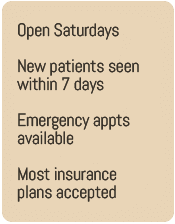What Questions Should I Ask My Oncologist?
Anytime you visit a physician or specialist regarding cancer, it is in your best interest to get as much information as possible. If you think you may have cancer or your doctor suspects that you do, there are important questions you should ask your oncologist to enable you to make well-informed decisions and know what to expect throughout your treatment journey.
Making a diagnosis
Upon speaking with your oncologist, there are some essential clarifying questions to ask about your condition. Having these on hand when you go in for your appointment will not only provide you with more information about your health but also ensure your physician didn’t miss any details when establishing your diagnosis.
- Judging from my symptoms, what condition do you think I have?
- What is the cause of this type of cancer?
- How common is this diagnosis?
- What test or series of tests do I need to confirm my diagnosis?
- Will I repeat any of these tests after or while I undergo treatment? How often?
- What can I expect with my diagnosis?
- Have you worked with other patients with this diagnosis? How many?
- Is this cancer curable?
This series of questions will help you understand why, how, what and where your cancer is, as well as make sure your cancer specialist checks and double-checks the tests to confirm his or her findings in determining the location and level of severity of your cancer.
Treatment options
After you have checked with your oncologist to confirm their findings, most patients want to know as much as possible about their treatment options and ongoing care. The recommended cancer treatment will be largely dependent on the stage and location of your cancer, as well as how you and your cancer respond to the treatment.
The following questions will help you in scheduling your appointments and will give you a better idea of what to expect throughout the process in terms of symptoms, side effects and potential outcomes. This will also be the point in the process that your oncologist and care facility work with your insurance to give you a cost estimate for your treatment plan.
- What are the best options or the best plan for treatment?
- What side effects can I expect over the course of my treatment?
- What is the treatment’s success rate considering my diagnosis?
- What does this treatment cost, and will my insurance cover it?
Lifestyle changes and other details
Another concern that many patients have is how your diagnosis is going to affect your life. Your condition and treatment could disrupt your work, travel or vacation, exercise and regular activities of daily living. This can also have a serious impact on your family, coworkers and loved ones.
- Do I need to make any lifestyle or diet changes to improve my quality of life?
- Will I still be able to work?
- Will I still be able to travel?
- What activities should I avoid?
- Is this type of cancer hereditary? Should my family members get tested?
- What resources do you recommend so I can read more about my condition?
- What type of follow-up appointments should I expect?
Whatever the case may be, make sure you speak with your oncologist about how your course of treatment is going to impact normal, every-day tasks. Ask your oncologist what activities are safe to perform and what you should avoid while you are undergoing treatment. This is also an excellent time to ask if the type of cancer you have is genetic, in which case your oncologist may be able to offer advice on preventive strategies for biological children and relatives.
Whether it is your first appointment or a follow-up, having a list of questions prepared for your oncologist is the best way to get fully informed about your condition and its potential impact on your life in the far and near future.
Cancer treatment in the Triangle
Personalized Hematology-Oncology provides oncology consultation for all types of cancer. Our expertise includes chemotherapy, molecular targeted therapies and infusion administration while managing the patient’s doses, side effects and response to therapy. Contact us for more information or to make an oncology consultation appointment.





